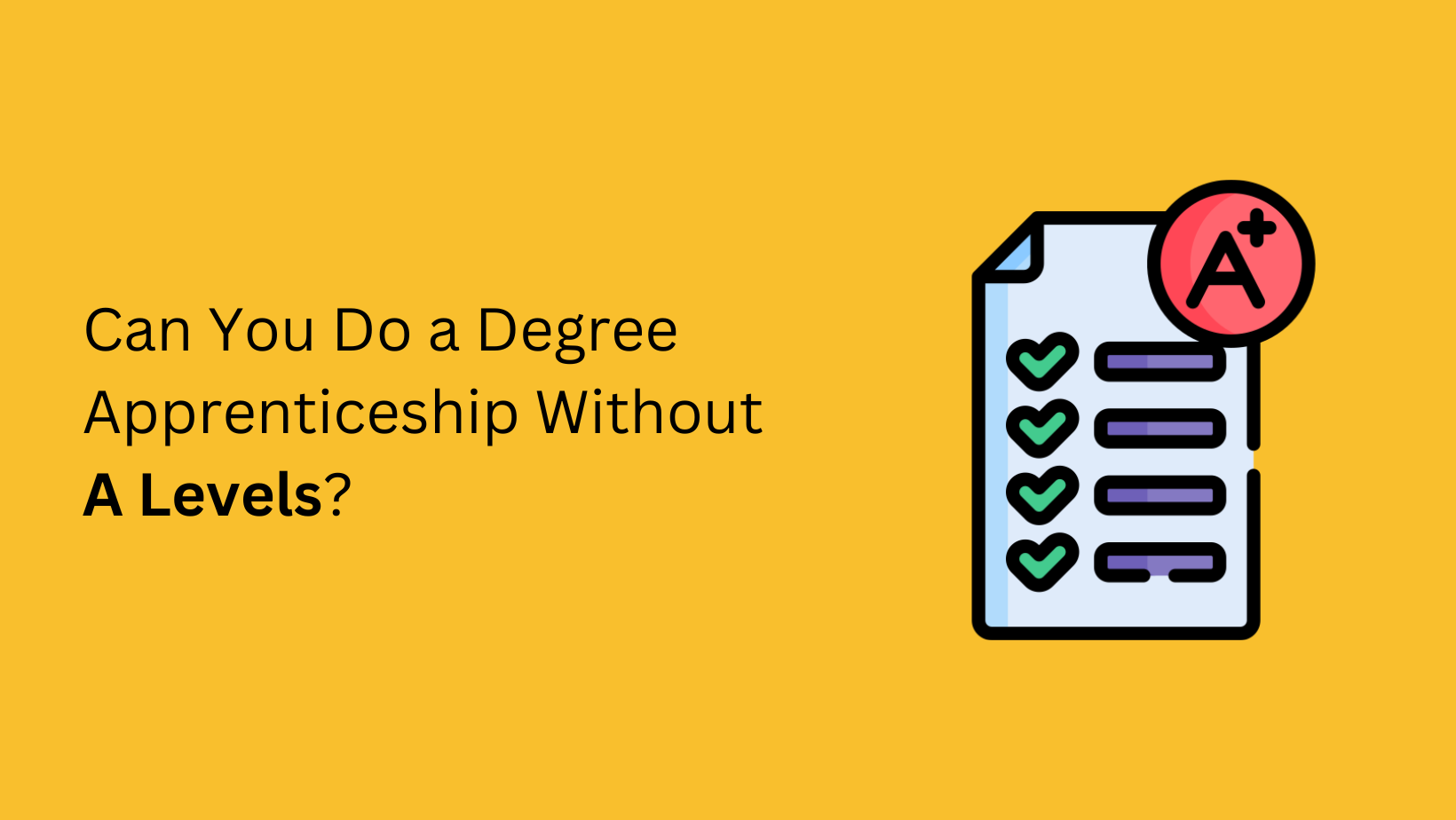Apprenticeships are an excellent way to gain practical skills and knowledge while earning a wage. However, you may wonder, “Can you do a degree apprenticeship without a levels?”
In today’s rapidly evolving job market, individuals are exploring alternative routes to higher education that combine academic knowledge with practical work experience. One such pathway gaining popularity is the degree apprenticeship.
A-level qualifications have traditionally been a requirement for entering a degree apprenticeship program. However, recent developments have opened doors for those without A-levels to embark on this exciting educational journey.
This article will explore the possibilities and options for pursuing a degree apprenticeship without A-level qualifications.

What is a Degree Apprenticeship?
A degree apprenticeship is a unique learning program that enables individuals to obtain a bachelor’s or master’s degree while gaining valuable work experience. It combines on-the-job training with academic study, allowing apprentices to apply their academic knowledge directly in a professional setting. Degree apprenticeships are offered in various fields, including business, engineering, healthcare, digital technology, etc.
Traditional A-Level Requirements
Traditionally, A-level qualifications have been a standard entry requirement for degree apprenticeships. However, not having A-levels should not discourage aspiring apprentices, as alternative pathways have emerged to accommodate those without these qualifications.
Alternative Entry Routes
Recognising that A-levels may not be the only indicator of an individual’s potential, universities and apprenticeship providers have introduced alternative entry routes to degree apprenticeships. Here are some options available to prospective apprentices without A-level qualifications:
- Access to Higher Education Diplomas: An Access to Higher Education (HE) Diploma is a qualification designed for mature students who lack formal qualifications such as A-levels. It provides a pathway to higher education by preparing individuals for university-level study. Many universities and apprenticeship providers now accept Access to HE Diplomas as an alternative to A-levels, enabling individuals to enter degree apprenticeships based on their performance in these courses.
- Relevant Work Experience: In some cases, extensive work experience or vocational qualifications in a specific field may be considered an alternative to A-levels. This is particularly true for industries with significant value in practical skills and experience. Candidates with a proven track record of relevant work experience may be eligible for degree apprenticeships, demonstrating their ability to excel academically and professionally.
- Skills Assessment and Aptitude Tests: Certain apprenticeship programs may assess candidates based on their skills and aptitude through specific assessments or aptitude tests. These evaluations can provide insights into an individual’s abilities, allowing employers and universities to gauge their suitability for a degree apprenticeship. Such assessments focus on practical skills, problem-solving abilities, and critical thinking, which sometimes outweigh the absence of A-level qualifications.
- Foundation Year Programs: Some universities offer foundation year programs to bridge the gap for students lacking traditional entry requirements. These preparatory courses provide an opportunity to develop the skills and knowledge required to enter a degree apprenticeship. Foundation year programs are specifically tailored to equip students with the academic grounding they need to succeed in higher education.
Summary
The landscape of higher education and apprenticeships in England is evolving, and the entry requirements for degree apprenticeships are no longer limited to A-level qualifications. Instead, alternative pathways have emerged, offering opportunities for those without A-levels to pursue their desired apprenticeships. Through Access to HE Diplomas, relevant work experience, skills assessments, and foundation year programs, individuals can showcase their abilities and unlock the door to a rewarding degree apprenticeship. By embracing these alternative routes, aspiring apprentices can acquire valuable practical experience while earning a recognised degree, paving the way for a successful career.
